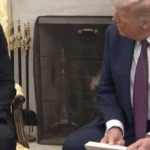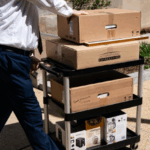Fuel Ventures, one of the UK’s leading venture capital funds, has closed a £20 million investment round, attracting significant backing from key Chinese investors, including the Shijingshan Industrial Fund and Zhongguancun Development Group. The deal highlights the growing appeal of the UK as an emerging destination for Asian capital, particularly in the tech sector.
Mark Pearson, founder of Fuel Ventures, emphasized the importance of the collaboration, noting that the investment round will support UK startups in cutting-edge fields such as fintech, artificial intelligence (AI), and software as a service (SaaS). “We’ve been working closely with our Chinese partners to guide investments into UK startups, creating a growing UK-China partnership that reflects the broader trend towards international collaboration,” Pearson said. “This partnership not only opens doors for startups in both countries but also forges meaningful connections between their tech ecosystems.”
The influx of Chinese capital into the UK underscores the increasing interest in the country’s thriving tech scene, which is now the largest in Europe and the third-largest in the world. According to Fuel Ventures, the UK’s strong educational system, rich cultural environment, and dynamic tech sector make it an attractive investment destination for Chinese investors. The country’s world-class academic institutions produce a steady stream of skilled graduates, providing a solid foundation for innovation and startup growth.
Jing Jing Xu, Managing Director at Fuel Ventures Asia, further elaborated on the appeal of the UK to Chinese investors. “Chinese investors have long valued UK education, and the country’s top universities foster an exceptional talent pipeline,” Xu said. “Over 154,000 Chinese students studied in the UK last year, an 80% increase over the past decade. These academic ties, along with the UK’s globally recognized tech capabilities, position Britain as a growth-oriented and consistent market.”
This collaboration aligns with Beijing’s recent initiatives to introduce advanced technologies into China, as discussed during recent talks with the Deputy Mayor of Beijing. The partnership offers mutual benefits: UK and European founders gain access to one of the world’s largest consumer markets, while Chinese investors tap into cutting-edge technologies and innovative business models emerging from Europe.
The new investment round further strengthens Fuel Ventures’ position as a key player in global venture capital, providing startups with opportunities to expand into both Western and Eastern markets. This cross-border collaboration sets the stage for long-term international success, positioning UK startups for growth in an increasingly interconnected global economy.









